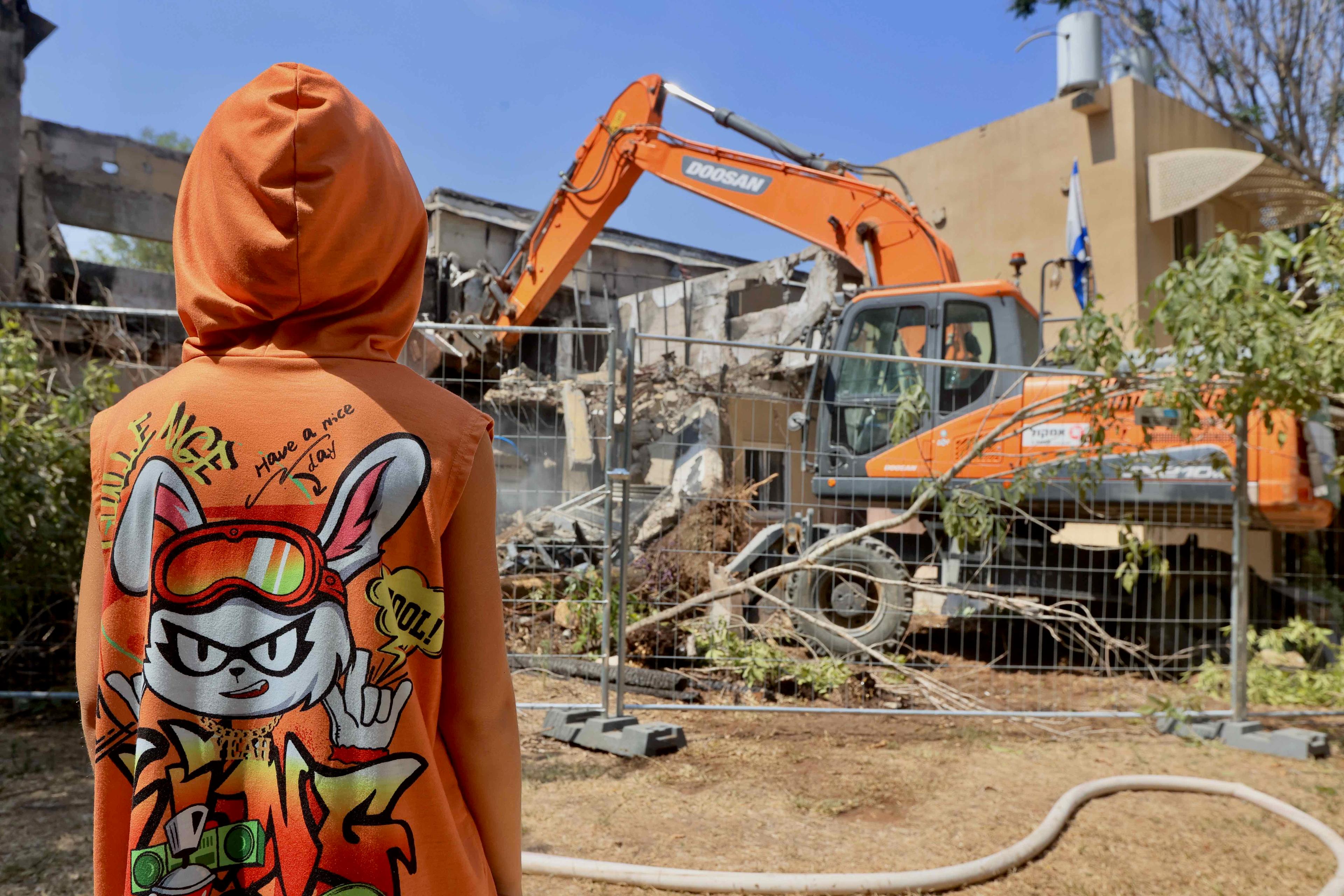Brothers in Blood
Gaza Border Survivors and Judean & Samarian Settlers Find Unity After October 7 - But It's Complicated
When Hamas terrorists murdered Aviad Becher's wife and son at their secular kibbutz near Gaza, they also shattered his assumptions about Israel's religious settlers – the very people who rushed to defend his community on October 7th. "It's almost lucky this happened in my kibbutz," he said. Here's why.

Kibbutz survivor Aviad Becher lost his wife and son to Hamas terrorists. Now he's confronting his own prejudices about Israeli settlers in a way he never expected.
"I'll say something hard," Becher told News 12 in a revealing interview. "It's almost lucky this happened in my kibbutz. If Hamas had attacked the settlements instead, I might have thought 'Why were they even living there?' or worse, 'They deserved it.' I paid an unthinkable price for this lesson."
The October 7 massacre is reshaping long-held divisions between two very different Israeli communities: the secular kibbutzim along the Gaza border and the religious settlers of Gush Etzion in the West Bank. When Hamas attacked, Gush Etzion residents rushed to defend the kibbutzim - some losing their lives in the process.
Now, settlers are showing up at hostage release rallies, though not everyone's convinced about their motives. One Be'eri resident admitted initial skepticism but now hopes settler support might sway right-wing politicians. "If the call for a hostage deal comes from you," a kibbutz tour guide told visiting settlers, "it might actually get heard."
But there's a catch. While some barriers are falling, political differences remain stark. Alon Fauker, a historian from Be'eri, puts it bluntly: while he no longer "hates" settlers, he still believes they're "good citizens who made a mistake" by living over the Green Line.
The newfound relationship extends beyond the hostage crisis to hot-button issues like investigating the October 7 security failure and calls for new elections. Critics argue these human connections are being leveraged for political goals, particularly by those opposing Prime Minister Netanyahu's government.
News 12's coverage notably excludes voices from right-wing hostage families and settlement supporters who oppose territorial compromise, raising questions about whether this unity can survive Israel's deep political divides.
"It was settlers who came to fight for us that day," one kibbutz resident noted, highlighting the painful irony: it took a massacre for some Israelis to recognize others as brothers, while some still view their newfound allies primarily as useful political partners.
Source: Irit Linor for Path Pavers